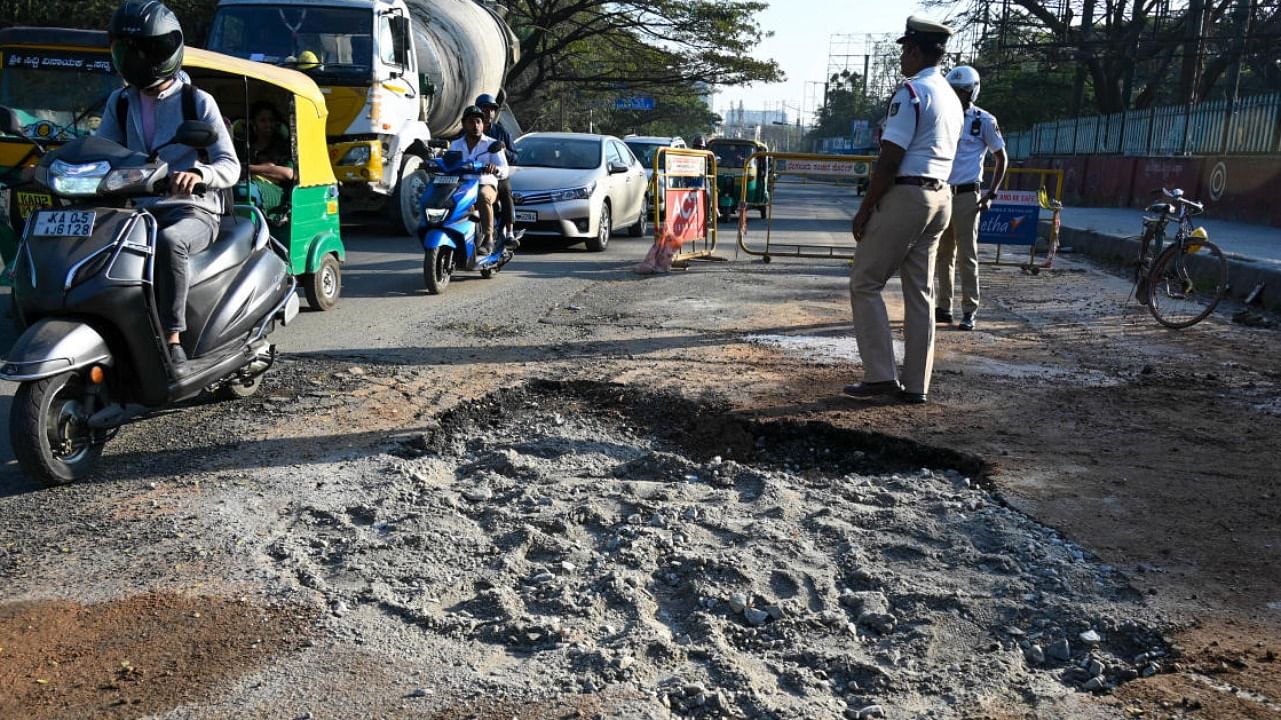
Bengaluru may not get respite from leaking pipelines, disruptions in water supply and sinkholes anytime soon.
A project to replace the city’s old pipelines — some of which were laid at least 80 years ago — at a cost of Rs 8,000 crore is unlikely to take off in the near future because of a fund crunch that is hobbling the BWSSB.
Although the state capital received nearly Rs 9,000 crore in the state budget presented on Friday to fix its infrastructure, water supply and allied departments got a measly amount, though they have a host of works that need financing.
The Bangalore Water Supply and Sewerage Board (BWSSB) received just Rs 200 crore, that too for works relating to supplying water to 110 villages on the city’s periphery. No funds were allocated for replacing the old pipelines.
And the effect is visible on the city’s roads. Water seepage leading to loosening of the soil is the major cause for most of the sinkholes reported in the city recently, and this is a direct result of leaking and damaged pipelines.
On top of that, the government has not approved the BWSSB demand for increasing the water tariff for the last three years, adding to the misery of the board.
“Pipelines in many parts of the city, especially in and around the Central Business District (CBD), are as old as 80 years and we have not been able to replace them because of the huge financial cost,” a senior BWSSB official conceded.
Rough estimates by BWSSB officials show that a whopping Rs 8,000 crore is required to replace old pipelines across the city.
“The BWSSB runs a pipeline network of close to 8,000 km. Some of these have been installed in recent years. The problem is only in the CBD and some old Bengaluru areas. In the CBD, we have managed to get a few pipelines replaced under the Smart Cities Mission but many others continue to remain fragile,” yet another official explained.
Such leaking pipelines have also affected the water supply across the city with complaints pouring in from citizens.
In many cases, citizens either complain of low-pressure water supply or complete disruption in supply. We then check and replace the pipes, the official said.
While old pipelines are one part of the problem, rampant unauthorised digging of city roads is a bigger problem, the official said.
“The BBMP has failed to control private firms from digging the roads to lay cables. Many times, they damage the pipelines during the process and close up the road without informing us. We have no means to identify the leaking pipes unless water oozes out and in many cases results in sinkholes,” the official said.
With funds not coming from the government, the BWSSB has been increasingly depending on loans from the Japan International Cooperation Agency (JICA) and other agencies to take up crucial projects.